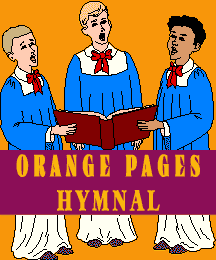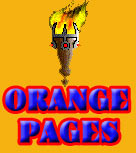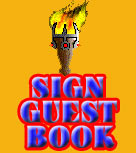|
|
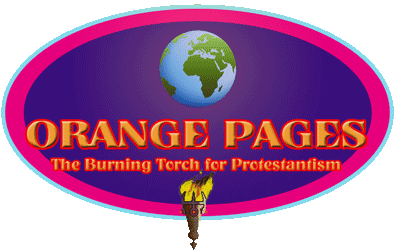 |
|
|
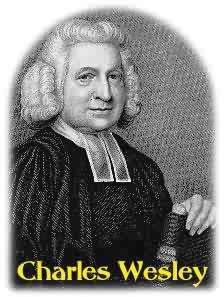
Charles Wesley (1707-88)
|
Introduction. The Beginnings. Samuel Wesley's ambition was to make scholars and clergymen of his three sons - the daughters, alas, had lesser prospects and little happiness. John was educated at Charterhouse, but Charles like his older brother Samuel - was sent to Westminster school. As well as proving an excellent scholar, Charles showed his mettle by defending others from the school bullies. In June 1726, he entered Christ Church, Oxford. By then, John had been ordained and elected a Fellow of Lincoln College. When he tried to restrain the rather careless and fun loving ways of his young brother, Charles resisted with "Would you have me to become a saint all at once?" If Charles was no less a scholar than John, he was less calm and collected than his brother, and subject to emotional ups and downs. When he graduated in 1730, father Samuel wrote from Epworth, "You are now fairly launched. Hold up your head and swim like a man." After John returned for a while to Epworth to assist his father, Charles became deeply exercised about spiritual things. He gathered together some others who shared his new religious seriousness. Thus began the 'Holy Club' in 1729, its members soon to receive the nickname 'Methodists'. While John later became leader of the little group, it was started by Charles. Thus he was properly the 'first Methodist'. In 1732, George Whitefield of Pembroke College joined the group, and a close bond of friendship developed between himself and Charles Wesley who was now a College tutor . There is no doubt that the Holy Spirit was at work in the lives of these young men. Even before they were delivered from the legalism of their sincere but lifeless religion - Whitefield was the first to find assurance of salvation in May 1735 - there were signs of life. On his death-bed in April 1735, old Samuel said to John, "The inward witness, son, the inward witness, this is the proof, the strongest proof of Christianity." Laying his hand on Charles' head, Samuel said "Be steady. The Christian faith will surely revive in this kingdom. You shall see it; though I shall not." Georgia and failure. Having recovered a measure of strength and self respect, Charles was soon meeting important people. Having been deeply impressed by the godly Moravians in America, he was similarly affected on meeting their leader Count Zinzendorf in London. He was selected to appear before King George II on behalf of the University of Oxford at Hampton Court on August 26th 1737. But despite the dignified circles he was now moving in - he was something of a celebrity having returned from Georgia - Charles was full of unrest and uncertainty. In his distress, he sought help from the mystic William Law, but to no avail. An old friend from the Holy Club, Benjamin Ingham wrote to John, "Charles is so reserved, he neither writes to me nor comes too see me..........." Charles was cheered by his brother's return from Georgia in February, 1738. He still hoped to return to Georgia as a missionary, but all expectations ended with a severe attack of pleurisy. Resuming academic life at Oxford seemed the only way ahead, but God had other plans for the Wesley brothers. They travelled to Oxford in April with the young Moravian Peter Bohler. From him they first learned the nature of true evangelical Christianity. Bohler's portrait of the brothers in a letter to Count Zinzendorf is very revealing: "The elder, John, is a good-natured man; he knew he did not properly believe in our Saviour, and was willing to be taught. His brother is at present very much distressed in his mind, but does not know how he shall begin to be acquainted with the Saviour." The Day of deliverance. "I now found myself at peace with God, and rejoiced in hope of loving Christ..... I saw that by faith I stood, by the continual support of faith.......I went to bed still sensible of my own weakness....yet confident of Christ's protection." On the following day, Charles strength began to return. He also commenced what proved to be the first of some 6,000 hymns! The day after - May 24th - John himself found assurance of salvation during a meeting in nearby Aldersgate Street. Let Charles tell us what happened that evening: "Towards ten, my brother was brought in triumph by a troop of our friends, and declared, "I believe." We sang the hymn with great joy, and parted with prayer.........." The joyful account is not complete without the hymn:- Where shall my wondering soul begin? Exactly a year later, Charles wrote the more famous hymn, "0 for a thousand tongues to sing", which he recommended for singing "on the anniversary of one's conversion." The Great Awakening Charles Wesley's new spiritual life was seen in his deep compassion for lost men and women. His preaching was quite transformed. He preached extempore for the first time at St, Antholin's Church in Bristol in October 1738. Unusual blessing was accompanying his powerful ministry. By this time, George Whitefield's ministry was having an astonishing impact and he was severely criticised in London and Bristol. Charles Wesley stood at Whitefields side when he preached to an enormous crowd at Blackheath, and asked, "What has Satan gained by turning him out of the churches?" In May, Charles Wesley joined his brother in following Whitefield's example when he preached to large crowds in the Essex villages. It has been said with some truth that if George Whitefield was Methodism's orator, and John Wesley its organiser, then Charles Wesley was its poet. However, this interesting view of the famous trio fails to acknowledge the impact of the Wesley's preaching. But if John Wesley was a greatly used preacher and evangelist, Charles himself was a preacher second only to Whitefield himself! "His preaching at his best was thunder and lightning," says one of the early Methodists. Joseph Williams of Kidderminster once heard Charles Wesley preaching at Bristol to a crowd of 1,000 people: "He preached about an hour.....in such a manner as I have seldom, if ever heard any minister preach; that is, though I have heard many a finer sermon according to the common taste, yet I have scarcely ever heard any minister discover such evident signs of a vehement desire or labour so earnestly to convince his hearers." There was, of course, that other dimension; the singing. A selection of Charles Wesley's hymns was first published in 1739, and these became instantly popular, judging by Joseph William's account: "Never did I hear such praying or such singing. Their singing was not only the most harmonious and delightful I ever heard, but they sang 'lustily and with a good courage'.........If there be such a thing as heavenly music upon earth I heard it there." Subsequent hymn hooks for "The People called Methodists" (1779, 1877 (with Supplement), 1904, 1933 and 1983) and selections of Wesley's hymns in numerous other hymn books enable us to be familiar with the hymn-writer's unique gift. His fame and usefulness are guaranteed. However, we should not allow ourselves to forget his courageous evangelistic labours in which, for twenty years, he lifted up his voice for Christ. Heroic Days. However, gospel victories were hard won. During a visit to Cardiff in 1740, certain of Charles Wesley's hearers - doctors, magistrates and others - were annoyed at his directness in preaching. Some of them told them that in the church he recognised no superior but God, and should not ask anyones permission to expose his sins. During the night a mob consisting of theatrical people surrounded the house, incensed that Methodist preaching was proving too much of a counter-attraction! However, although a man approached Wesley with a sword, God was so wonderfully present - "Great was our rejoicing within" - that he was able to pass through the crowd to safety to catch the boat for Bristol. As far afield as Sheffield and Devises, such deliverances were experienced. Sometimes there were minor injuries, a small price to pay when souls were being saved in great numbers. These heroic times are often reflected in Charles Wesley's hymns. When tougher men might shake for fear, Wesley and his fellow- labourers had the strong sense of being upheld by an invisible Hand! "My Sally." London and the latter years. Charles Wesley was a hymn writer to the end. When travelling he would take out a piece of carol and write down a line or two. When he lay dying in March, 1788 - quite worn out with toil in his master's service, he dictated these lines to his beloved Sally: "In age and feebleness extreme, (Reproduced by kind permission of Rv., Dr. Alan C. Clifford. - Minister of Great Ellingham Baptist Church, Norfolk.) |
